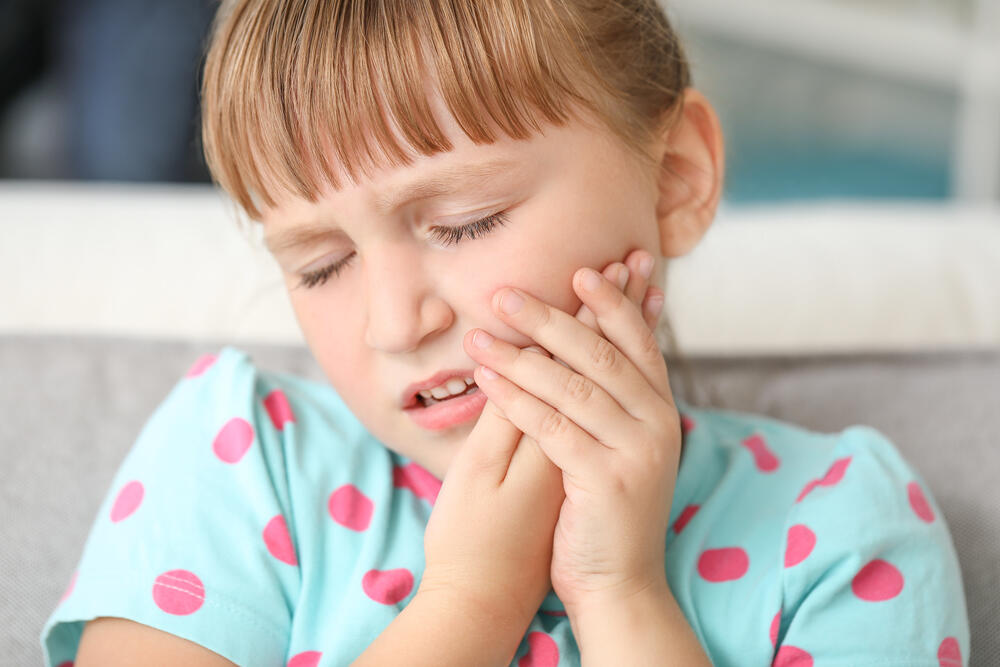Your child’s oral health consists of more than simply their teeth. The gums are equally vital, and if there is a problem, they may need treatment from a dentist. Your toddler’s gums may sometimes get swollen over their teeth, making it unpleasant for them to chew. If this is the case, it is crucial to make a dental visit for them as soon as possible.
Swollen Gums: What Causes Them?
According to Pediatric Dentistry Indianapolis IN, bacteria in the mouth is the most prevalent cause of gum swelling. Brushing and flossing regularly will often help clean away the germs that might cause gums to swell. So, if you haven’t been assisting your child with this, now is the moment.
Even if your kid has a few teeth, swollen gums might occur because their mouth has to be cleaned. Also, don’t forget to plan your child’s first dental appointment within six months of their first tooth erupting!
Other possible causes of a toddler’s gums swelling over their teeth include:
A persistent bacterial infection causes gum disease. The mild type is known as gingivitis, while the severe form is periodontitis.
- Dry mouth – This may be caused by an underlying health problem, so if this causes your child’s gum swelling, make an appointment with their primary care physician.
- Malnutrition – Although uncommon in industrialized nations, ensuring your kid eats a nutritious, balanced diet might help protect their gums from being infected.
- Oral trauma may be caused by anything from abrasive brushing to a fall. Your dentist will evaluate your child’s mouth for injuries during the appointment, and the good news is that after it heals, your toddler’s gums bulging over their teeth should be substantially decreased.
Keep a record of your child’s habits and any recent injuries so that you can alert the dentist when you come for your visit.
Swollen Gums Treatment
When you realize your kid has swollen gums, the first and most crucial thing is to stay calm and book an appointment with your pediatric dentist as soon as possible. The dentist will examine to discover the source of the swelling and the best treatment option.
According to Children Dental Indianapolis IN, if gum disease is the cause, your dentist may advise you to use specialized mouthwashes and toothpaste to treat the infection. If the gum disease is advanced, they may utilize a procedure known as the scale to remove plaque and germs from the teeth and gums. This therapy will assist in slowing the development of gum disease and guarantee that the teeth reconnect to the gums quickly.
Between the time you notice your toddler’s gums growing over their teeth and the time your child’s checkup, you may take actions at home to assist relieve your child’s pain. Continue to assist them with brushing and flossing, but do so gently, not further, to hurt the affected tissue.
You may also have your kid rinse with a saltwater solution to help eliminate germs if they are old enough. One cup of lukewarm water and 1 teaspoon of salt. Please take a little sip and swirl it in your child’s mouth. Make it clear that they should not consume the solution! This should be done three or four times each day to assist relax their gums.
You may also use a hot compress to relieve the discomfort caused by your toddler’s gums bulging over their teeth. A cold compress may also assist decrease swelling if their gums are enormous. Finally, make sure your kid drinks enough water since this increases saliva production, which aids in the reduction of germs in the mouth.
How to Avoid Swollen Gums
According to Kids Dentist Indianapolis, IN, Once you’ve visited your pediatric dentist and your child’s gum swelling has healed, make sure it doesn’t come back by practicing good dental hygiene daily. Assist your child in brushing their teeth twice a day for two minutes each time. Also, make sure they floss once a day, with help if needed.
If your child is reluctant to brush their teeth regularly, consider including them into your daily routine, making it a game, or even creating a fun, two-minute-long song to educate them that brushing isn’t a duty or a punishment.
Maintain frequent dental checkups for your youngster. Seeing a dentist every six months keeps their teeth extremely clean (particularly in hard-to-reach spots), but it also allows your dentist to notice possible concerns and fix them early.
Rinse with Tea Tree Oil
Tea tree oil, like seawater, has antibacterial and anti-inflammatory effects. This makes it an excellent option for reducing the swelling of a child’s gums around a tooth. However, since the oil is potentially hazardous if eaten, you should only allow older children to utilize this therapy.
Mix three drops of tea tree essential oil into eight ounces of warm water to help ease your child’s inflamed gums. Swish this combination twice or three times a day for 30 seconds each, then spit it out. After that, it’s a good idea to rinse with plain water again.
Use a Cold Compress
Gently apply a cold compress to your child’s face on the side with swelling. Because ice reduces inflammation, you may have your kid hold tiny shards of ice in their mouths to give comfort when their gums are inflamed around their tooth.
Preventing Swelled Gums
Once your child’s gums have swollen, there isn’t much of a long-term solution that doesn’t need a trip to the dentist. It is critical to avoid swollen gums in the first place.
Maintain adequate dental hygiene. Make sure your youngster washes their teeth thoroughly for two minutes twice a day.
Floss once daily. If your kid is old enough, make sure they floss at least once a day. It is preferable to floss before brushing so that you may remove food particles with the floss and then brush them away to help avoid swollen gums around your child’s teeth.
Gargle with mouthwash. Once your kid is old enough, the last step in maintaining proper dental hygiene is to use mouthwash at least once every day.
Have regular dental checkups. Checkups are required twice a year to preserve healthy teeth and gums. Ensure that your kid visits the dentist at least twice a year for these sessions.



